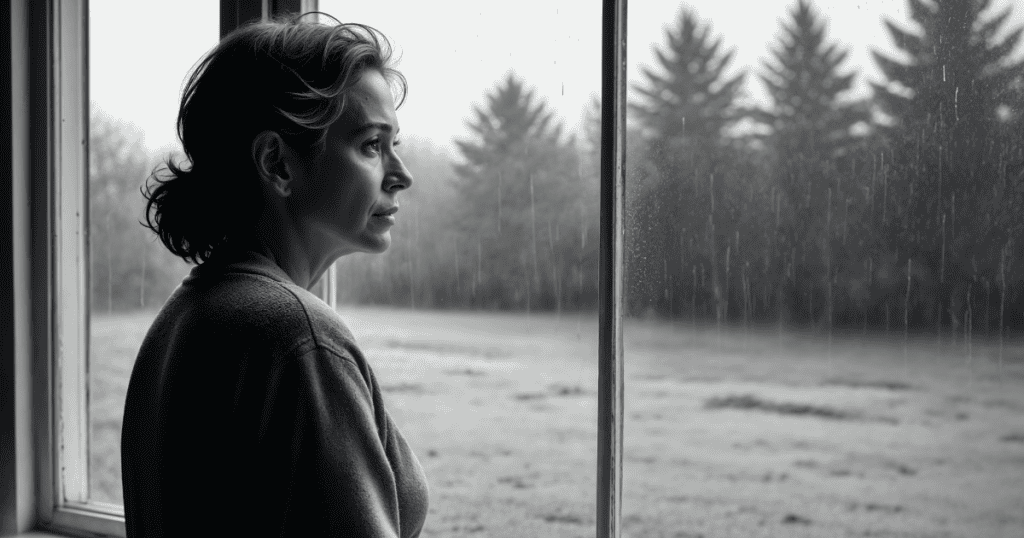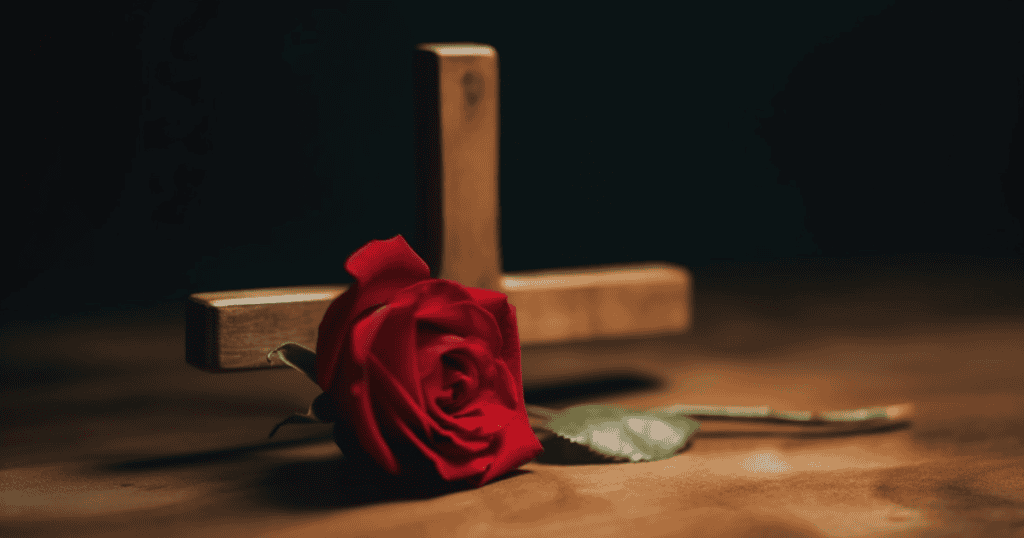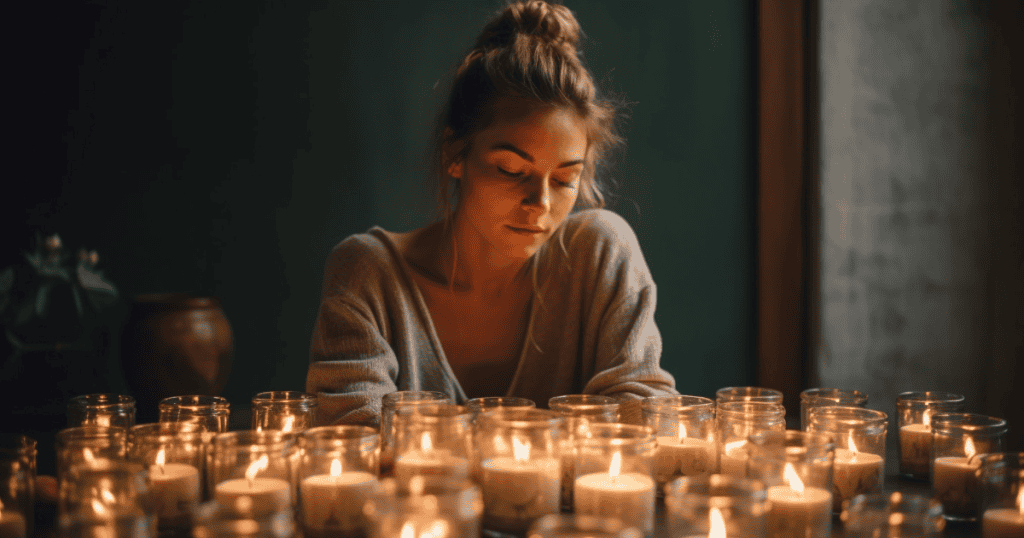Grieving someone who’s still alive is one of the most misunderstood experiences you can ever go through.
People assume grief is reserved for death, but when the person you’ve lost is technically “still here,” the ache becomes invisible.
I remember standing in the kitchen after yet another blow-up with my mother.
It wasn’t one of those explosive fights you see in movies. It was quieter. Sharp words, a look of disdain, and then silence.
Something inside me shifted that night.
I realized I had to grieve a relationship I would never have, even though I might bump into her at the grocery store next week.
This kind of grief is laced with betrayal, relief, and disbelief.
It’s a mourning process society rarely acknowledges.
You don’t get casseroles delivered to your doorstep or sympathy cards in the mail.
Instead, you’re left with the lonely task of letting go of someone who still breathes, but never truly saw you.
Table of Contents
Why Grieving a Narcissist Feels Different?

When you grieve a narcissist, you’re not just grieving the person. You’re grieving the version of them you needed but never got.
You’re mourning the narcissistic mother who was supposed to nurture.
You’re grieving the toxic sibling who was supposed to protect, or the egocentric aunt who was supposed to cheer you on.
Instead, you got manipulation, gaslighting, and betrayal.
I spent years waiting for my mother’s approval, hoping one day she’d recognize me as her daughter instead of her competitor.
I kept thinking, “Maybe if I’m kinder, smarter, or more successful.”
But grieving a narcissist means facing the harsh truth: the version of them you long for never existed.
What makes it harder is how society fails to validate this pain.
After all, the narcissist is still alive, right there, acting like nothing happened.
To outsiders, reconciliation looks possible. To you, it’s an open wound.
This type of grief is also different because it’s not final.
When someone dies, there’s a clear boundary. You know they are gone.
With a narcissist, the door is always cracked open.
They might text you out of the blue, show up at a family event, or even pretend nothing happened.
Each appearance rips the scab off wounds you’ve worked so hard to heal.
That constant re-exposure makes your grief cyclical rather than linear.
You’re not just grieving once. You’re grieving in loops, every time their shadow crosses your life.
That’s why it feels heavier than the grief people expect you to carry.
It’s not a clean break. It’s a cut that keeps reopening.
3 Hard Truths You Must Hear When Grieving Narcissists

Truth #1: What You’re Feeling (or Not Feeling) Is Normal
The first time I felt relief after going low-contact with my mother, I panicked.
How could I feel better without her? Wasn’t I supposed to be drowning in sadness?
There were days I felt absolutely nothing. Other days, I swung between rage, heartbreak, and confusion.
I even laughed with my cousins one night and then cried myself to sleep, guilty for enjoying life without her shadow.
That’s the thing about narcissistic grief. It doesn’t follow the normal stages people expect.
Your body is wired for survival.
Numbness, relief, and even joy are all signs your mind is protecting you from further harm.
Think of it this way: if your house caught fire, you wouldn’t criticize yourself for running out the door without crying first.
You’d recognize that your instincts were protecting you.
That’s exactly what your emotions are doing after narcissistic abuse. They prioritize survival, not performance.
You might also notice emotions showing up “out of order.”
Instead of moving from denial to anger to bargaining to depression to acceptance, the process doesn’t always follow a neat order.
You may cycle through anger and numbness in the same afternoon. Or laugh at a memory in the morning and rage at it by night.
That doesn’t mean you’re broken. It means your healing doesn’t fit society’s script.
Truth #2: The Weight Won’t Always Feel This Unbearable

In the first months of going no contact, the grief sat on my chest like a boulder.
I would wake up with tightness in my lungs, bracing for an attack that would never come.
The silence was deafening.
For so long, my nervous system was trained to anticipate criticism, judgment, or drama.
Without it, my body didn’t know how to breathe freely.
But slowly, the heaviness began to lift.
The more distance I put between myself and the chaos, the more my nervous system stopped bracing for war.
This is because your brain and body adapt.
Just as you once adapted to survive constant tension, you will also adapt to safety.
Your nervous system learns that the silence doesn’t mean danger anymore. It means peace.
The first time you notice yourself laughing without fear of judgment, or sleeping deeply without waking up in panic, it will shock you.
That’s how healing feels. Gradual, quiet, but undeniable.
Over time, you’ll realize that the absence of chaos creates space for things you never thought possible.
Joy no longer feels fragile, rest feels safe, and your self no longer has to shrink.
Healing from narcissists doesn’t erase the past, but it softens its grip on your present.
One day, you’ll look back and realize the unbearable weight became a stepping stone toward freedom.
The intensity of this pain will fade, even if you can’t imagine it right now.
Truth #3: Feeling Better Doesn’t Mean You’re Letting Go of Love

The first time I laughed again after cutting ties with my toxic parent, I felt a pang of guilt.
How could I enjoy life without her? Didn’t that mean I was abandoning her?
But healing doesn’t mean you never cared. It means you’ve untangled love from obligation and pain.
What many people don’t understand is that grief after narcissistic abuse is complicated by guilt.
Society teaches us that children must always honor their parents, siblings must always stay close, and family bonds are sacred above all else.
So when you finally step away, you’re often left carrying an invisible weight. The fear that healing makes you heartless.
You can acknowledge that love once existed while also acknowledging that love was not safe for you.
Feeling lighter doesn’t erase the history you shared. It simply means you’re refusing to let pain be the only thing guiding your life.
I still carry memories of her, the good ones and the bad.
But I no longer let those memories dictate my future.
My cousins, my dad, and my husband remind me daily that I can love deeply without letting that love chain me to suffering.
Healing is not betrayal. It’s survival.
How to Stay Steady When the Grief Hits?

Grief doesn’t move in straight lines.
It comes in waves, birthdays, family gatherings, holidays, or even the smell of a familiar perfume can knock you down.
I still get hit during Christmas when I see families laughing around the table.
For years, I forced myself into those toxic gatherings, thinking I was keeping the peace.
Now, I create my own traditions with my husband, my dad, and my cousins.
It’s not the same, but it’s peaceful.
Here are strategies that helped me:
- Grounding techniques: When the wave comes, I focus on five things I see, four I feel, three I hear, two I smell, and one I taste. It brings me back to the present instead of spiraling into the past.
- Limit exposure to flying monkeys: Family members who carry the narcissist’s messages can reopen wounds. Protect your peace.
- Safe venting spaces: A trusted friend, a journal, or even a voice memo on your phone.
- Anchor rituals: Light a candle, brew tea, or go for a short walk when the grief spikes. Small repeated acts tell your brain, “I am safe now.”
Preparedness is power.
When you expect the waves, they lose their ability to drown you.
How to Keep Grief From Pulling You Back In?

Grief can trick you into thinking you made the wrong choice.
The loneliness whispers, “Maybe it wasn’t that bad. Maybe you overreacted.”
One night, I almost called my mother.
I was overwhelmed, tired, and aching for comfort, even if it came from the very person who hurt me.
What stopped me was reading an old journal entry. My own handwriting reminded me of the chaos I fought so hard to escape.
That’s why I keep reminders of what really happened, like screenshots, notes, and journal entries.
When nostalgia hits, they pull me back to reality.
Memories can be selective, but the truth written down doesn’t lie.
If you don’t have those reminders, borrow strength from people who witnessed the abuse.
My husband, my cousins, and even my dad gently remind me, “You left for a reason.”
Surround yourself with people who help you stay grounded in reality, not the fantasy your grief tries to sell you.
Healing isn’t about never missing them. It’s about never letting grief drag you back into a war you already won.
It’s choosing freedom, over and over again, until freedom becomes second nature.
Related posts:
- How I Handle Loneliness After Cutting Ties From My Narcissistic Family?
- How I Stopped Feeling Guilty After Cutting Off My Narcissistic Family (And Why It Was Extremely Critical For Moving Forward)
- 15 Surprising Truths I Discovered in Therapy (And Why They Matter)
- Cleansed by the Truth: Finding Freedom in Acknowledgment Amidst Trauma
- How I Reparented Myself After Leaving My Narcissistic Family (And Finally Felt Safe in My Own Skin)


